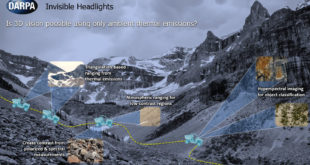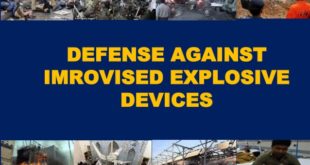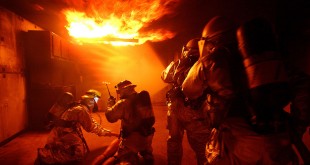A new programme from the US Defense Advanced Research Projects Agency (DARPA) aims to address a key weakness of autonomous and semi-autonomous land systems: the need for active illumination to navigate in low-light conditions. Accurate position and attitude information of the vehicle as well as the ability to detection static …
Read More »Monthly Archives: August 2020
New food technologies to enhance soldier perfomance for success in military operations.
With nutritional status being central to success in battle, food technology has long been considered an enabler for military operations. Food technology has been instrumental in ensuring that troops remain “fit to fight”. Early military leaders realised that how well their men were fed played a crucial role in success …
Read More »Global threat of landmines and IED require new IED neutralization technologies
IED’s have become an extremely significant and dangerous force protection issue in the wake of Operation Iraqi Freedom (OIF) and the Global War on Terror (GWOT). Insurgents and terrorists are using a variety of asymmetric techniques to attack militarily superior coalition forces with military ordnance components combined with commercial off …
Read More »New detection technologies tracking terrorists through thick concrete, underground tunnels, and caves
In April 2017, the U.S. military dropped the most powerful non-nuclear bomb ever used in combat on a tunnel complex in Afghanistan’s Nangarhar province. The airstrike targeted the Islamic State’s Khorasan branch. The use of the GBU-43/B Massive Ordnance Air Blast weapon, the so-called “Mother of All Bombs,” highlighted the …
Read More »Militaries employing UAV swarms under Network Centric Electronic Warfare concept to counter A2/AD environment
All modern forces depend on unimpeded access to, and use of, the EM spectrum in conducting military operations. Therefore, there is a requirement to gain and maintain an advantage in the electromagnetic spectrum by countering adversary’s systems and protecting one’s own systems. Electronic Warfare has become now a means to …
Read More »Autonomous take-off and Landing technologies to allow UAVs to operated in tactical battlefield and integrate into National Air Space
An unmanned aerial vehicle (UAV) ( commonly known as a drone) is an aircraft without a human pilot on board. UAVs are a component of an unmanned aircraft system (UAS); which include a UAV, a ground-based controller, and a system of communications between the two. The flight of UAVs may …
Read More »DARPA’s AtmoSense to employ Atmosphere as Global Sensor for measuring thunderstorms, tornadoes, volcanos, and tsunamis for military operations
Sensors are usually thought of in terms of physical devices that receive and respond to electromagnetic signals – from everyday sensors in our smartphones and connected home appliances to more advanced sensors in buildings, cars, airplanes and spacecraft. However present day physical sensors are severely limited in range to continuously …
Read More »Rapid rise in drone operations and cyber threats require safety and security solutions, secure hardware and software technologies and standards
Drones are increasingly making an impact on society and economy. Drones are used by the military for intelligence gathering, anti-aircraft target practice, and also for weapons platforms. They are also used for many civilian roles such as agricultural surveillance, mapping, tracking, search and rescue, traffic monitoring, firefighting, weather monitoring, engineering …
Read More »Countries developing new, longer range and lethal heavyweight torpedos fired by ultraquiet submarines to kill adversaries
Torpedoes are self-propelled guided projectiles that operate underwater and are designed to detonate on contact or in proximity to a target. For the U.S. Navy, the modern torpedo enables submarines to defeat surface and undersea threats and gives surface ships and aircraft the means to reach beneath the surface and …
Read More »DARPA calls for Neurological and Internal Organ Regeneration Biotechnology for wounded warriors
Some parts of our bodies can repair themselves quite well after injury, but others don’t repair at all. We certainly can’t regrow a whole leg or arm, but some animals CAN regrow – or regenerate – whole body parts. So what can we learn from these regenerative animals? Regeneration means …
Read More » International Defense Security & Technology Your trusted Source for News, Research and Analysis
International Defense Security & Technology Your trusted Source for News, Research and Analysis









